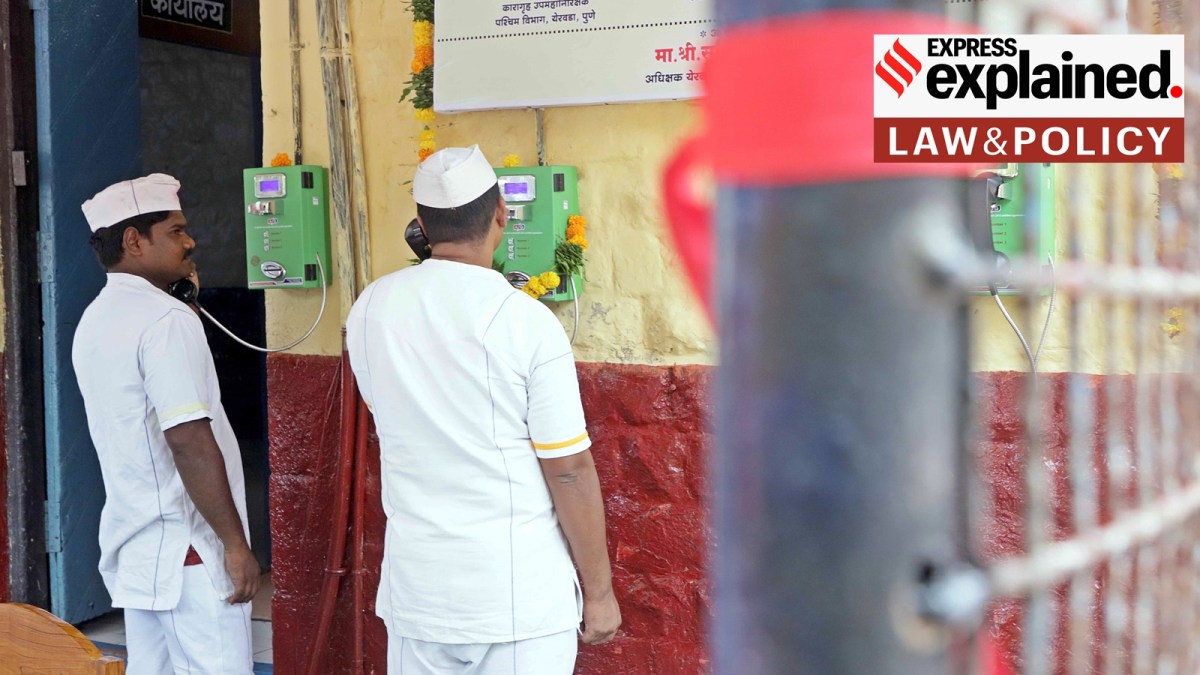Explained: Supreme Court ruling on relaxing bail provision for first-time offenders to apply retrospectively
The order could have a major impact on India’s undertrial prisoners. According to the latest available data from the NCRB’s 2022 report on prison statistics, India’s 1,330 prisons have a 131.4% occupancy. Of the 5,73,200 prisoners, around 75% are undertrials.

A Supreme Court ruling on Friday (August 23) said that relaxed bail provisions for first-time offenders under the new criminal law Bharatiya Nagarik Suraksha Sanhita (BNSS) will have a “retrospective effect”.
It means that even if the offence predates the BNSS, which came into force on July 1 this year, first-time offenders detained in pending criminal cases can take advantage of BNSS provisions and be released on bail. An undertrial prisoner is in prison or judicial custody while the charges against them are tried in court.
What the law says on bail for undertrial prisoners
Both the BNSS (Section 479) and the now-replaced Criminal Procedure Code, 1973, (Section 436A) contain provisions on the “Maximum period for which undertrial prisoner can be detained”.
Under both, if an investigation or trial is pending, an undertrial prisoner shall be released on bail if they have already undergone detention for up to half the maximum period of imprisonment specified for that offence under the law. The sole exception is if they are alleged to have committed an offence punishable with death or life imprisonment.
The BNSS introduces a new provision that reduces the detention period for undertrials before they can be released if they are ‘first-time offenders’ — those who have never been convicted of any offence in the past.
It states that such a person “shall be released on bond by the Court, if he has undergone detention for the period extending up to one-third of the maximum period of imprisonment specified for such offence under that law”.
What did the Supreme Court rule?
Since 2013, the Supreme Court has been monitoring issues related to prison conditions in the case Re Inhuman Conditions in 1382 Prisons. It began as a PIL after former Chief Justice of India R.C. Lahoti sent a letter to the court, highlighting issues such as overcrowding in prisons, unnatural deaths of prisoners, and the inadequacy of trained prison staff.
The court then appointed Senior Advocate Gaurav Agrawal as amicus curiae (friend of the court) to assist the court by identifying important issues and providing updates on whether the court’s directions have been complied with.
According to the court’s order dated August 13, 2024, Agrawal submitted that Section 479 of the BNSS “needs to be implemented at the earliest and it will help in addressing over-crowding in prisons”. In response, Additional Solicitor General Aishwarya Bhati informed the court that she would need time to obtain instructions from the Centre, clarifying its position.
On August 23, ASG Bhati reportedly stated, “I am happy to report that Union of India is also of the view that the provisions has to be given full effect to…It has to apply to any undertrial who has completed up to one-third of the imprisonment and must be considered accordingly”.
The bench comprising Justices Hima Kohli and Sandeep Mehta directed jail superintendents to begin processing applications for all eligible undertrial prisoners within three months.